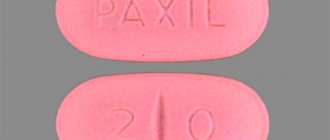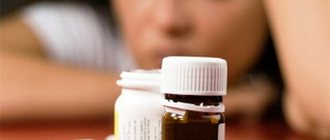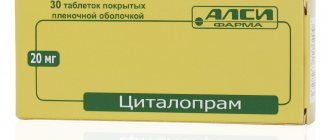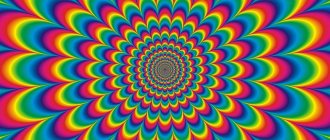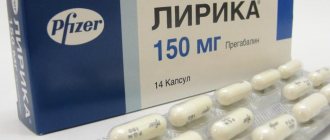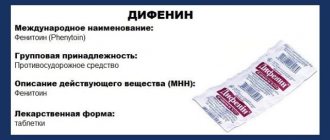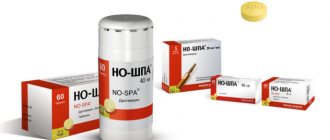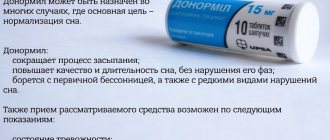Antidepressants without a prescription
Today, only the lazy do not treat depression.
Psychologists with pedagogical education, coaches of all stripes, traditional healers and even hereditary witches. This whole heterogeneous company nevertheless reads something on the problem and understands that it is unlikely that it will be possible to cure real clinically significant depression simply by talking and laying on of hands. And many who feel that they have begun to fall into a pit of depression, but are afraid to contact a psychiatrist, do not mind taking medications that could simply be bought without a prescription at the pharmacy. This is because the system of psychiatric care in our country still more closely resembles a light mixture of the army and the bazaar, because it is either immediately “registered” or for money!
We will immediately disappoint the audience with the message that today’s antidepressants are prescription drugs. If some commercial pharmacy, in violation of the rules, sells something without a prescription, then antidepressants will not become over-the-counter. They have a lot of serious side effects, so the advisability of taking them and individual selection of dosages should be carried out only by the attending physician.
AfobazoleAfobazol (270-320 rubles, 60 tablets) can be considered one of the mild antidepressants sold without a prescription. Indications: for somatic diseases with adaptation disorders - irritable bowel syndrome, bronchial asthma, coronary artery disease, hypertension, arrhythmia. For anxiety, neurasthenia, oncological and dermatological conditions. diseases. For sleep disorders (how to fall asleep quickly), for symptoms of PMS, neurocirculatory dystonia, alcohol withdrawal syndrome, for quitting smoking to alleviate withdrawal symptoms. Contraindications: Increased individual sensitivity, children under 18 years of age, during pregnancy and lactation. Application: after meals, 10 mg 3 times a day, no more than 60 mg per day, course of treatment is 2-4 weeks, the course can be extended to 3 months. Side effects: allergic reactions. |
Unfortunately, simply taking some antidepressant and hoping for quick relief from depression is futile. After all, depression and depression are different. On the same dosages of the same anti-depression medication, one patient achieves full clinical recovery, while another just begins to develop suicidal thoughts.
Antidepressants often include herbal sedatives, which are not antidepressants at all:
- Preparations of Valerian, Melissa, Peppermint, Motherwort
- Combined tablets - Novopassit, Persen, Tenoten - are sedatives that will not help with depression.
There is one thing: to eliminate the manifestations of depression, synthetic drugs, which are tens of times more effective than St. John's wort, have to be taken in courses of several months. Therefore, St. John's wort will have to be brewed, infused in kilograms, and consumed in liters, which, naturally, is inconvenient and impractical, although it can somewhat distract from sad thoughts about the frailty of all things during depression.
The pharmacological industry offers St. John's wort in tablet form without a prescription as a mild antidepressant (nootropic) for psychovegetative disorders, neurotic reactions, mild depressive states - these are Deprim, Neuroplant, Doppelhertz nervotonic, Negrustin, Gelarium.
Deprim
Ingredients: dry standardized extract of St. John's wort. It has a pronounced sedative effect, since the active substances of St. John's wort - pseudohypericin, hypericin, hyperforin and flavonoids - have a positive effect on the functional state of the central nervous system and the autonomic nervous system. Increases physical activity, improves mood, normalizes sleep. Indications: sensitivity to weather changes, mild depression, anxiety, menopausal syndrome in women. Contraindications: severe depression, tablets are contraindicated for children under 6 years of age, capsules for children under 12 years of age, hypersensitivity - allergic reactions to St. John's wort and components of the drug, the effect of the drug on the fetus - there are no reliable studies, therefore it is not prescribed during pregnancy and lactation. Dosage: from 6 to 12 years only under the supervision of a doctor, 1-2 tablets in the morning and evening, adults: 1 capsule or tablet 1 r/day or 3 r/day, possibly 2 tablets 2 times a day. The effect occurs after 2 weeks of use; you cannot take a double dose if you miss a dose. Side effects: constipation, nausea, vomiting, anxiety, feeling tired, itchy skin, redness of the skin, photosensitivity - simultaneous use of the drug and sunbathing can lead to sunburn (see sun allergy). Tetracyclines, thiazide diuretics, sulfonamides, quinolones, and piroxicam especially enhance photosensitivity. Overdose: weakness, drowsiness, increased side effects. Special instructions: the drug should be carefully prescribed simultaneously with other antidepressants, triptans for migraines, oral contraceptives (see the harm of birth control pills), it is not prescribed simultaneously with cardiac glycosides, cyclosporine, theophylline, indinavir, reserpine. Enhances the effect of analgesics and general anesthesia. During use, you should avoid drinking alcohol, exposure to the sun and other ultraviolet radiation. If there is no improvement after a month of taking it, stop taking it and consult a doctor. |
Neuroplant20 tab. 200 rub. Ingredients: dry extract of St. John's wort herb, ascorbic acid. Indications and contraindications are similar to the drug Deprim. In addition, Neuroplan is strictly contraindicated for children under 12 years of age, women during pregnancy and breastfeeding, with increased photosensitivity, and is prescribed with caution for diabetes mellitus. Dosage: It is better to take before meals, do not chew, but take 1 tablet whole with water. 2-3 times a day, and if there is no effect within several weeks of use, the drug is discontinued and treatment is adjusted. Side effects: indigestion, allergic skin reactions, psycho-emotional stress, apathy, Quincke's edema. Concomitant use with other drugs: reduces the concentration of hormonal contraceptives and increases the risk of bleeding between menstruation. When taken simultaneously with antidepressants, the likelihood of side effects increases - unreasonable fear, anxiety, vomiting, nausea, as well as a decrease in the effect of amitriptyline, midazolam, nortriptyline. When taken with drugs that increase photosensitivity, the risk of photosensitivity increases. Neuroplant reduces the therapeutic effect of indinavir and other HIV protease inhibitors, drugs used to treat cancer that inhibit cell growth. |
Doppelhertz neurotonic250 ml. 320-350 rub. Ingredients: Elixir Doppelhertz Nervotonic - liquid extract of St. John's wort, as well as cherry liqueur concentrate and liqueur wine. Indications and contraindications are similar to Deprim and Neuroplant. Additionally: Doppelhertz Nervotonic should be taken with caution for brain diseases, liver diseases, traumatic brain injuries, and alcoholism. Side effects: rarely allergic reactions, dyspepsia, in people with fair skin with a tendency to photosensitivity - photosensitivity reactions. Application: 3 times a day, 20 ml. after eating for 1.5 -2 months, if there is no effect, you should consult a doctor. Special instructions: like other drugs with St. John's wort extract, interactions with other drugs should be taken into account when taken simultaneously. The drug contains 18 vol.% ethanol, that is, when taking the recommended dose, 2.8 g of ethanol enters the body, therefore you should refrain from driving vehicles and working with other mechanisms that require the speed of psychomotor reactions (driving a car, working as a dispatcher, working with moving mechanisms etc.) |
NegrustinCapsules Negrustin - dry extract of St. John's wort Solution Negrustin - liquid extract of St. John's wort Indications, contraindications and side effects are similar to other St. John's wort preparations. Dosage: children over 12 years of age and adults, 1 capsule 1-2 times a day or 3 times a day, 1 ml. solution, course of therapy 6-8 weeks, possible repeated courses. Capsules should be taken during meals with liquid; the solution can also be taken diluted or undiluted during meals. Special instructions: Like other drugs with the active ingredient of St. John's wort extract, caution should be exercised when used together with the drugs listed above. Negrustin solution contains sorbitol and delivers 121 mg of it at each dose. The drug is also prescribed with caution to persons with fructose intolerance. Negrustin, with the simultaneous use of alcohol or tranquilizers, affects a person’s psychophysical abilities (driving vehicles and working with other mechanisms). |
GelariumDragee Gelarium Hypericum is a dry extract of St. John's wort herb. Indications, contraindications, side effects, interactions with other drugs are similar to all drugs containing St. John's wort. Application: 1 tablet 3 times a day over 12 years of age and adults, for a course of at least 4 weeks, during meals, with water. Special instructions: the break between taking the above drugs (if taken simultaneously) should be at least 2 weeks; in case of diabetes mellitus, it should be taken into account that a single dose contains less than 0.03 XE. |
Herbal medicines with St. John's wort are widely available in pharmacy chains, the price is 20 filter bags or 50 grams. dry matter 40-50 rub.
How does someone taking Paxil feel?
In a word: normal. For some reason, many people in Russia think that antidepressants are drugs. They supposedly give you a high, so they are prohibited.
Antidepressants don't actually make you feel good. And you can buy them at any pharmacy with a prescription from a local psychotherapist.
They begin to act in the second week of admission. It’s not that you will immediately start flying like on wings, but most likely:
- you will be in a normal mood;
- you will have the strength to get up and do something;
- you will want to drink less.
Taking these pills will help you take care of work or business, organize your life in such a way that there will be no time and no need to drink.
By the way, combining antidepressants and even small doses of alcohol is quite dangerous.
This will be an additional incentive not to drink. Read more about why you can’t combine antidepressants with alcohol and how much of a break you should take between them in a separate article. Subscribe to our YouTube channel!
What are the best antidepressants to take?
Any sane person understands that it is better to be treated with those drugs prescribed by a specialist who understands this, is guided by treatment standards, information about the drug and his clinical experience in using the drug.
Turning your own precious body into a testing ground for antidepressants is, at a minimum, imprudent. If such a fixed idea has come to you, then it is better to find some Institute of Psychiatry, where programs for clinical trials of medications are regularly held (at least you will receive competent advice and free treatment).
In general, antidepressants are medications that elevate mood, improve overall mental well-being, and also cause emotional uplift without falling into euphoria or ecstasy.
It is recommended to take the entire daily dose once in the morning after breakfast. Treatment begins with 20 mg of the drug daily (one tablet). If there is no effect, the dose is increased by half two weeks from the start of treatment. Then they are observed for another 2 weeks and if the treatment is ineffective, they are increased by another half tablet.
The average therapeutic dosage of Paxil for emotional disorders is 20 mg, the maximum is 50 mg. For anxiety disorders, the average therapeutic dose is 40 mg, and the maximum is 60 mg.
Paxil begins to have an effect on the body immediately after administration, but this is almost always impossible to notice clinically. A noticeable effect in most patients is observed after one to two weeks of use. You should not stop taking the drug suddenly, as withdrawal syndrome is possible. You should learn more about its manifestations and ways to avoid it.
Comparing the ease of use of Prozac and Paxil
This includes dose selection taking into account various conditions and frequency of doses. At the same time, it is important not to forget about the release form of the drug; it is also important to take it into account when making an assessment.
The ease of use of Prozac is approximately the same as Paxil. However, they are not convenient enough to use.
The drug ratings were compiled by experienced pharmacists who studied international research. The report is generated automatically.
Last update date: 2019-09-19 05:59:54
Drug group
In addition to antidepressants, tranquilizers are also used in the treatment of depression:
- This group of drugs eliminates feelings of fear, emotional stress and anxiety.
- At the same time, the medications do not impair memory and thinking.
- Additionally, tranquilizers can prevent and relieve seizures, relax muscles, and normalize the functioning of the autonomic nervous system.
- In medium doses, tranquilizers lower blood pressure, normalize heart rate and blood circulation in the brain.
Thus, tranquilizers mainly differ from antidepressants by their opposite effect on the autonomic nervous system. Also, tranquilizers have the greatest effect on fear and anxiety, which can be eliminated even with a single dose, while antidepressants require a course of treatment. Tranquilizers are more likely to cause addiction and their withdrawal symptoms are more pronounced and severe.
If tranquilizers are abruptly discontinued after taking them for a long time, a withdrawal syndrome may develop, manifested by sweating, tremors of the limbs, dizziness, sleep disturbances, intestinal dysfunction, headache, drowsiness, increased sensitivity to sounds and smells, tinnitus, disturbances in the perception of reality, and depression.
| Benzodiazepine derivatives | Heterocyclic drugs |
They remove all types of anxiety and are effective for sleep disorders, panic attacks, fears, and obsessive states.
| These are new tranquilizers. The most popular is buspirone, which combines the properties of a tranquilizer and an antidepressant. The mechanism of its action is based on the normalization of serotonin transmission. Buspirone perfectly calms, neutralizes anxiety, and has an anticonvulsant effect. Does not cause lethargy and weakness, does not impair memory, memorization and thinking. Can be combined with alcohol and is not addictive.
|
| Triazolebenzodiazepine drugs | Glycerol analogues – Equanil (Meprobomate) Diphenylmethane analogues – Hydroxyzine (Atarax), Benactizine (Amizil) |
| Used for depression in combination with anxiety: |
Paxil belongs to the psychotropic drugs of the antidepressant group. Antidepressants are a broad group that includes several subgroups of drugs that can combat disorders in the emotional sphere. Paxil, like paroxetine, belongs to the subgroup of selective serotonin reuptake inhibitors (SSRIs). The drug differs from other representatives of the subgroup in its rather pronounced effect on the emotional sphere.
Terms of sale
The drug is dispensed from pharmacies according to a doctor's prescription. The drug must be stored out of the reach of children, in a dark place, at a temperature not exceeding 25°C. Shelf life is 3 years from the date indicated on the package. After the shelf life has expired, use is contraindicated.
On prescription.
The medicine should be stored at a temperature no higher than 25 degrees Celsius, in a place where sunlight and moisture do not penetrate, inaccessible to children and pets.
Names of antidepressants
Antidepressants can be divided depending on their effect on inhibition processes. There are drugs with a calming, stimulating and balanced effect.
- Sedatives: Amitriptyline, Pipofezin (Azafen), Mianserin (Lerivon), Doxepin.
- Stimulants: Metralindole (Inkazan), Imipramine (Melipramine), Nortriptyline, Bupropion (Wellbutrin), Moclobemide (Aurorix), Fluoxetine (Prozac, Prodel, Profluzac, Fluval).
- Balanced action drugs: clomipramine (Anafranil), Maprotiline (Lyudiomil), Tianeptine (Coaxil), Pyrazidol.
All of them are divided into seven large groups, each of which has its own indications and preferences for certain manifestations of depression.
These are first generation drugs. They interfere with the reuptake of norepinephrine and serotonin at the nerve synapse. Due to this, these mediators accumulate in the nerve connection and accelerate the transmission of the nerve impulse. These means include:
- Amitriptyline, Doxepin, Imipramine
- Desipramine, Trimipramine, Nortriptyline
Due to the fact that this group of drugs has quite a lot of side effects (dry mouth and mucous membranes, constipation, difficulty urinating, heart rhythm disturbances, hand tremors, blurred vision), they are used less and less.
- Sertraline - Aleval, Asentra, Zoloft, Seralin, Stimuloton
- Paroxetine - Paxil, Rexetine, Adepress, Plizil, Actaparoxetine
- Fluoxetine - Prozac, Fluval, Prodel
- Fluvoxamine - Fevarin
- Citalopram - Oprah, Cipralex, Selectra
Such antidepressants are preferable for neurotic depression, accompanied by fears, aggression, and panic attacks. The side effects of these medications are not extensive. The main one is nervous excitement. But large doses or overdose can lead to the accumulation of serotonin and serotonin syndrome.
This syndrome is manifested by dizziness, trembling of the limbs, which can develop into convulsions, increased blood pressure, nausea, diarrhea, increased physical activity, and even mental disorders.
They work similarly to the drugs of the previous group. Milnacipran and venlafaxine are indicated for depression with obsessive-compulsive disorder or phobias. Side effects include headache, drowsiness, and anxiety.
Heterocyclic antidepressants (with receptor action) are preferable in the elderly and when depression is combined with sleep disorders. Cause drowsiness, may increase appetite and promote weight gain.
- Mianserin (Lerivon), Nefazodone
- Mirtazapine (Remeron), Trazodone (Trittico)
Drugs of choice for depressive disorders with panic attacks, fear of open spaces, and psychosomatic manifestations (when depression provokes internal illnesses). They are divided into:
- irreversible - Tranylcypromine, Phenelzine
- reversible - Befol, Pyrazidol (Normazidol), Moclobemide (Aurorix)
Able to overcome symptoms of depression in one week. They are effective for somatized depression with palpitations and headaches. They are also used for depression of an alcoholic nature or depression with psychosis against the background of cerebrovascular accidents. But these drugs can be addictive like opiates, they include: Tianeptine (Coaxil).
These strong antidepressants were no longer sold without prescriptions after many inexpensive high-seekers used them “for other purposes” for several years throughout the post-Soviet space. The result of such experiments was not only multiple inflammations and vein thrombosis, but also a shortening of life to 4 months from the start of systematic use.
Overdose
Exceeding the dosage is accompanied by tachycardia, nausea and vomiting, agitation and increased excitability, changes in blood pressure, convulsions, dilated pupils, and fever. Cases of falling into a coma have been reported. When taken together with psychotropic drugs and alcohol, death may occur (very rarely).
Poisoning with the drug is dangerous to the life and health of the patient. Overdose is manifested by symptoms in the form of
- vomiting, nausea,
- drowsiness, asthenia or, on the contrary, excitement;
- seizures;
- manic mania, aggression;
- heart rhythm disturbances, blood pressure surges,
- loss of consciousness, coma and even death.
Symptoms of poisoning may include signs of liver disease - cirrhosis, hepatitis.
If the first signs of intoxication occur, perform a gastric lavage, take sorbents and call an ambulance. The drug does not have a specific antidote.
Pharmacological properties
The mechanism of action of this drug is based on the selective inhibition of serotonin reuptake. This means that Paxil prevents brain cells from absorbing the neurotransmitter serotonin from intersynaptic clefts. Serotonin is responsible for regulating mood; the more of it there is in the spaces between cells (intersynaptic clefts), the better a person’s mood. With depression, the concentration of this mediator decreases, and Paxil increases it, and thereby helps to cope with depression.
The emotional sphere is also influenced by other mediators, in particular dopamine and norepinephrine. Paxil, to a greater extent than other SSRIs, affects the uptake of these mediators, which makes it possible to use it to combat severe forms of depression.
In addition, the drug affects acetylcholine metabolism. An increase in this substance in the neurons of the brain causes a feeling of anxiety, and underlies the development of anxiety-phobic disorders. Paxil has anticholinergic properties, that is, it reduces the concentration of acetylcholine and reduces anxiety.
The multidirectional effect of Paxil on mediators of the central nervous system underlies the occurrence of a large number of side effects.
Patient reviews
“I turned to a psychotherapist in 2013. Before that, I went to different doctors: neurologists, cardiologists, endocrinologists. Only a psychotherapist helped. The chest pain and melancholy disappeared, my ability to work returned (barely before), my anxiety went away, my appetite returned to normal, I lost weight. The first pills the doctor prescribed were Valdoxan, paroxetine and magnesium supplements. I stopped taking Valdoxan after a month because it made me too sleepy. I took paroxetine for about a year and a half. Throwing away is not pleasant, of course. But then you begin to feel more alive: films and music begin to excite you more. Overall, during treatment, depression decreased from 52 to 5-7 on the Beck scale.”
“I was on these pills for years due to OCD and anxiety. I wanted to get pregnant and switched to Zoloft. Zoloft stopped working after a year and terrible panic attacks began again. I went back on Paxil. Overall, I’m glad that I don’t cry all the time and don’t yell at my family. One problem: I’ve gained 9 kilograms, but it’s better than living in fear. Take as directed. You have to wait a long time for the result; it won’t work in 1-2 days.”
Your doctor may prescribe Paxil or another antidepressant to help you come off a long-term binge. After a one-day binge, there may be similar symptoms: anxiety, guilt, bad mood for no reason - however, the treatment tactics will be different. Why antidepressants do not work for hangover depression and what to do with a bad mood during a hangover - read in a separate article.
Article published: 2019-01-01
This article was last updated: 06/12/2019
Didn't find what you were looking for?
Try using search
doctor or administrator.
Read the dictionary of terms.
List of new generation antidepressants
The most popular drugs today are from the group of selective serotonin and norepinephrine reuptake blockers.
- Sertraline (Sirlift, Zoloft, Stimuloton) is the “gold standard” in the treatment of depression today. Other drugs are compared with it in terms of effectiveness. Preferred in the treatment of depression combined with overeating, obsessive disorders and anxiety.
- Venlafaxine (Venlaxor, Velaxin, Efevelon) - prescribed for depression against the background of more severe mental disorders (for example, schizophrenia).
- Paroxetine (Paxil, Rexetine, Adepress, Sirestill, Plizil) is effective for mood disorders, melancholy and inhibited depression. It also relieves anxiety and suicidal tendencies. Treats personality disorders.
- Opipramol is the best option for somatized and alcoholic depression, as it inhibits vomiting, prevents convulsions, and stabilizes the autonomic nervous system.
- Mild antidepressants are fluoxetine (Prozac), which are somewhat weaker but milder than other serotonin uptake inhibitors.
Contraindications
The active ingredient Paxil is included in the list of vital and essential medicinal substances according to the World Health Organization. It is widely used in psychiatric practice in the treatment of diseases of the emotional-volitional sphere. The use of Paxil is justified in the following cases:
- Recurrent depressive disorder, current severe episode;
- First episode of severe depression;
- Generalized form of anxiety disorder;
- Obsessions and compulsions with severe obsessions;
- Mental disorders due to stressful situations;
- Fears and panic;
- Insomnia due to painful nightmares.
The drug is not used to treat symptomatic depression. In order to prevent relapse of these diseases, it is rarely used.
Paxil is not prescribed in case of individual intolerance to any components of this drug, as well as in case of allergic reactions to this drug.
In addition, its simultaneous use with any monoamine oxidase inhibitors is strictly prohibited. It is recommended to prescribe Paxil two weeks after discontinuation of monoamine oxidase inhibitors.
Another contraindication to prescribing the drug is decompensated renal or liver failure. Because the drug is metabolized in the liver and excreted by the kidneys, its blood concentrations in these diseases may be significantly higher than expected.
Pregnancy is included in the list of contraindications to the use of Paxil, since there is a risk of developing congenital defects in the fetus. You should learn more about the risks of taking this medication during pregnancy. In addition, Paxil is able to pass into milk in small quantities, so its administration to nursing mothers is also not recommended.
An absolute contraindication is treatment with this drug while intoxicated. This is especially true for people who abuse alcohol. The risks of this combination of alcohol and Paxil should be examined separately.
The use of Paxil is contraindicated in children under 15 years of age. No studies have been conducted on the effect of the drug on children's bodies. However, it is known that in childhood and adolescence it increases the risk of suicide attempts, aggressive behavior and agitation. According to ongoing studies, the increased risk of suicide attempts persists until the age of 24 years, and then does not differ from that when using placebo. It is recommended that young patients be treated in a hospital setting.
Paxil is not prescribed if the patient has bipolar affective disorder. It is important to have information about previous hospitalizations of a patient with affective pathology. If the current depressive episode is a manifestation of bipolar disorder, there remains a high risk of inversion of the disease into hypomania or mania. For the same reason, during the first episode of depression, it is recommended to prescribe Paxil under the guise of mood stabilizers.
Paxil is absolutely contraindicated in patients with glaucoma. This substance can increase intraocular pressure and aggravate the course of the pathology.
Correct technique for social phobia
Symptoms of social phobia are perfectly relieved when taking 20 mg per day for adults and 10 mg per day for children and adolescents. In such cases, they begin to take the drug Paxil (reviews from doctors and patients themselves confirm this) with 10 mg, after which the dosage is increased by 10 mg once a week.
Once the doctor confirms that the dosage is sufficient for treatment, it will not be increased further until the very end of the course of treatment. The average course lasts 4 months, although there have been many cases where 10 months were needed.
Side effects
Paxil has a large number of side effects, which develop with varying degrees of likelihood. Changes in sleep-wake patterns are most likely. Moreover, either drowsiness or insomnia or unusual strange dreams may occur. Young patients may experience agitation, nervousness, aggressiveness, and suicidal thoughts.
It is possible to develop short-term hearing loss and visual impairment. There is a description of the occurrence of cases of glaucoma. Blood pressure often decreases with the development of hypotension and bradycardia, but sometimes increased blood pressure and tachycardia are possible. Sometimes anemia and leukopenia develop, and thrombocytopenia is likely to develop. There is a risk of bleeding, especially when taken together with antiplatelet agents and anticoagulants.
Many patients note the development of sexual dysfunction up to complete impotence. Significant weight gain is possible. Patients often become dependent on the drug, so they should stop taking it correctly.
Analogs
Rexetine, Plizil, Adepres.
If low effectiveness of therapy or severe side effects are detected, Paxil analogues are prescribed. Replacement of a drug can only be carried out by the attending physician if there are sufficient grounds; self-administration of another drug without obtaining specialist advice about the possibility of replacement is unacceptable. Possible means of replacement are:
- Paroxetine;
- Adepress
- Paroxin;
- Rexetine.
